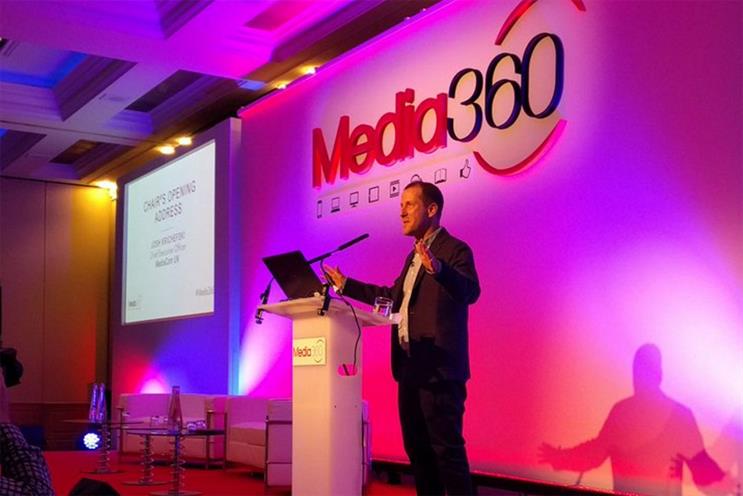
Chaired by Josh Krichefski, the UK chief executive of MediaCom, a panel of marketers from John Lewis and Airbnb joined the media owner rivals at the annual conference in Brighton to discuss how to build brand fame in the digital age
Krichefski asked Andrew Mortimer, the director of media at Sky, how the pay-TV giant balances its media spend on digital platforms such as Facebook with more traditional platforms such as television.
Mortimer said: "Over the last few years disruption has fundamentally changed our product set. Boxes are now connecting to the internet and ubiquitous broadband means that TV and video on demand is thriving. All those things are disrupting how consumers are consuming advertising and digital is a huge growth area for us.
He went on to say: "We’re getting a better understanding of the true impact of digital. We’ve done some amazing stuff with Facebook but some stuff isn’t great. There are issues of viewability and fraud. So now we’re looking at how technology has enhanced the traditional forms of media.
"Digital outdoor is fantastic and that’s been a real part of our plans because it’s helping us build brands against addressable TV, which does that too. That online gold rush is probably over and we’ll focus more on a small number of the right partners and go back to traditional media, especially when it’s enhanced by technology. "
Kelly Williams, the managing director, commercial, at ITV, singled out ad-blocking as the biggest digital disruptor in the market today, and rejected a challenge from Krichefski who asked him if "TV was dead" as brands direct more media spend towards the likes of YouTube.
He said: "I do worry sometimes we are in an industry where there’s a big difference between facts and opinion; it’s very easy to read sensational headlines. It’s disappointing because I think Google’s an amazing company and I think more money should be spent on video and YouTube. That’s not an issue. But the direction of travel is not from TV to online. It’s from static based, tech based display advertising to online video.
"It’s like Roy Hodgson at the Euros; he’s not going to take off his best player and replace him with someone from under 14s. TV is proven to be the best for building brands and best for profit and best for word of mouth and long-lasting results."
John Lewis’ head of marketing, Rachel Swift, said the digital age has presented the retailer with a new set of challenges, albeit it with an unchanged set of marketing principles.
Swift said: "At John Lewis we haven’t changed our strategy at all since Christmas, we’re about thoughtful gifting and great customer services. But how we deliver that message has changed dramatically.
"When we first started out, when I first started working on Christmas we just created an ad. Now we’ve got to work much harder… I’ve read that people are consuming 13.8 hours of media in 11 hours of time and I didn’t know how that’s possible. But it shows how you deliver the message and the tactics have changed."
Meanwhile Holly Clarke, the EMEA marketing manager at Airbnb, said the brand had reached a limit to how far it could go on word of mouth marketing through social media and that traditional media was still needed to grow and increase its user reach.
She said: "Customer experience is the number one thing to look out for. In the early days we grew by word of mouth alone. That came from people having a great experience. That was quite surprising and unknown. That word of mouth grew Airbnb from the early stages. That wouldn’t have happened if people weren’t able to access those experiences consistently.
"Having said that, you can’t grow on experiences alone. We were working on a very low level of awareness two years ago, despite our growth and how much we’re in the press. As our motto was ‘belong anywhere’ we knew we had to deliver on the ‘anywhere’, by growing in places like Cornwall. To deliver on that user experience we have to do above the line advertising to increase that awareness."



.jpg)


.jpg)